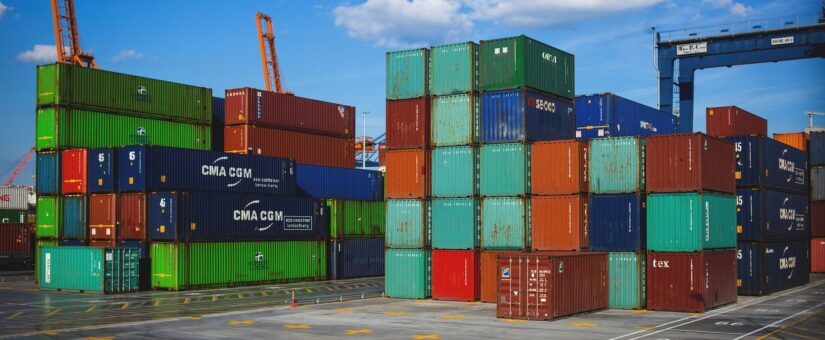
CONTAINER DEMURRAGE AND DETENTION UNDER ITALIAN LAW
Container demurrage and detention can be defined as the sum payable to the carrier on account failing to redeliver the containers – emptied and cleaned – within the agreed free time period. Specifically, the term demurrage refers to the charge to be paid for the use of the container within the terminal, whilst the term detention refers to the charge to be paid for the use of the container outside of the terminal or depot.
The issues related to container demurrage and detention are of utmost importance for the ones involved in the trade of containerized goods. This article will focus on the most relevant Italian case-law concerning the qualification of the contract related to the containers’ possession. Furthermore, it will be investigated which person – among the ones involved in a shipment of containerized goods – is to be considered responsible for the payment of demurrage and detention.
Qualification of the contract related to the containers’ possession
The issue related to the qualification of the contract for the use containers is to be addressed in the following terms. Upon conclusion of a contract of carriage between the parties, i.e. the shipper and the carrier, the latter makes the container available to the shipper usually from the loading to the discharge of the containerized goods. Is the use of these containers to be considered as an essential part of the contract of carriage or, instead, it constitutes an autonomous contract between the shipper and the carrier, namely a contract of lease?
According to the Italian case-law, in the carriage of containerized goods there are two distinct contracts in place between the shipper and carrier. The first contract is the contract of carriage of goods itself, evidenced by the bill of lading and the terms and conditions printed on the reverse of the bill or therewith incorporated by way of reference. The carrier – usually a liner – undertakes to ship the goods from the port of departure to the port of arrival. The second contract is a contract of lease of container concluded by conduct – i.e. without any formal written formality – which will be subject to the provisions of the Italian Civil Code set forth for the contracts of lease. This conclusion is underlined in a judgment given by the Court of Genoa in the early ’90 based on the fact that containers are only a tool for the carriage of goods and are not definitely, but just temporarily, given to the shipper for the freight pick-up and unloading. Therefore, the use of containers cannot be considered as one of the essential components of the contract of carriage of goods because, as laid down by the Italian Supreme Court in the judgment 12888/2009, “the economic and technical connection between the use of the containers and the execution of the transport does not determine any legal absorption”.
Frequently, shipping companies do not own the containers, but leases them from another supplier. However, this factor is not relevant for the purpose of the proper qualification of the containers’ possession. The Italian Supreme Court stated that “the status of lessor does not necessarily require the ownership of the containers despite the personal nature of the containers’ leasing because it is sufficient the material possession of the leased asset”. As a result, the sum payable to the carrier for the late redelivery of the containers is to be treated as a payment of a lease due for the usage of containers.
On the other side of the spectrum, common law systems do not envisage two distinct contracts. There is only the contract of carriage of goods in place between the shipper and the carrier, and the latter makes a container available to the shipper as a tool deemed necessary to properly perform the shipment. In such systems, it is well established that demurrage and detention represent liquidated damages. Just a minority of the Italian case-law endorses the common-law view. For instance, in the judgment n. 41/2016 the Court of Massa held that: “container demurrage is strictly related to the contract of carriage of goods and to its typical rights and obligations, such as the right of the receiver to have the goods and his obligation to collaborate with the carrier during the unloading in order to empty the containers and return the vessel to the shipowner. So, demurrage is a typical clause referred to the shipping”.
Detention and demurrage liability
Disputes related to container demurrage and detention usually arise from the identification of the person responsible for the payment. As a general rule, a carrier’s claim for demurrage is based on its standard terms of carriage (either printed in the reverse of the bill of lading or stated in the carrier’s website and incorporated by way of reference) providing that the “Merchant” is liable to pay detention and demurrage when the free time is exceeded. The definition of “Merchant” is often drafted in very broad terms so as to encompass the vast majority of players involved in a consignment, therefore including: shipper, holder, consignee, receiver of the goods, any person owing or entitled to the possession of the goods or of the bill of lading and anyone acting on behalf of such person.
It can be seen that this will allow the carrier to request payment to several persons involved in the shipment regardless the fact they are named into the bill of lading. It is normal practice that the carrier, in first instance, requests payment to the shipper. However, should he fail to respond to the payment request, the carrier could seek compensation from the agent who acted on the shipper’s behalf, namely the freight forwarder who arranged the booking with the carrier. According to article 1737 of the Italian Civil Code “the contract of freight forwarding is that contract under which the freight forwarder, acting in its own name and on behalf of its principal, undertakes to enter into a contract of carriage and undertakes to perform any ancillary operation”.
The potential liability of the freight forwarder companies for detention and demurrage under Italian law can be summarized as follows:
- The freight forwarder is named as shipper in the bill of lading: the carrier is entitled to claim demurrage and detention against the freight forwarder, although the latter has title to claim such sums back to his principal;
- The freight forwarder is not named in the bill of lading and also makes clear in the booking note that he acts “on behalf only” or “as agent only” for the shipper: the freight forwarder cannot be held liable jointly with the shipper for the payment of detention and demurrage as he clearly represented to the carrier that he acted “in the name and on behalf of” the shipper.
- The freight forwarder is not named in the bill of lading as shipper and the booking note does not provide information as to whether he acted “in his own name” or just “as agent only for the shipper”: the position taken by the Italian Supreme Court in the judgment n. 4900/2001 is that the freight forwarder is not liable against the carrier for the payment of detention and demurrage costs accrued at the ports of loading or discharge. According to the Court, the wording “ancillary operations” referred to under art. 1737 of the Civil Code includes the measuring and the weighting of the goods, the warehousing, the loading and unloading operations. However, it does not include the conclusion of a contract of lease for the supply of container which is, as mentioned before, an autonomous contract distinct from the contract of carriage. Unless otherwise provided, a freight forwarder always acts “in the name and on behalf” of its principal for the purpose of concluding a contract of lease of containers and, therefore, the principal, namely the shipper, is the sole person responsible against the carrier for the payment of the detention and demurrage costs.
Avv. Lorenzo Macchi
Dott. Gabriele Zabbatino

- Posted by Lorenzo Macchi
- On 13 April 2021


